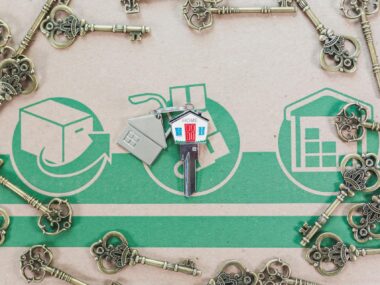When it comes to buying a home, choosing the right mortgage lender can feel like navigating a maze. With so many options available, how do you know which lender is best for you in 2024? This guide will walk you through the top mortgage lenders, key factors to consider, and tips to help you make the best choice.
Table of Contents
- Assess Your Financial Situation
- Compare Multiple Offers
- Check for Hidden Fees
- Customer Service and Support
- How do I know if I’m getting a good mortgage rate?
- Can I switch mortgage lenders during the process?
- What documents do I need to apply for a mortgage?
- How long does it take to get approved for a mortgage?
- Is it better to go with a bank or a credit union for a mortgage?
What is a Mortgage Lender?
A mortgage lender is a financial institution or entity that provides loans to individuals to buy homes. Essentially, they front the cash so you can get your dream home, while you pay it back over time with interest.
Why Choosing the Right Lender is Crucial
Choosing the right lender can save you thousands of dollars over the life of your loan. The interest rate, loan terms, fees, and even customer service can significantly impact your home-buying experience. You want a lender who not only offers competitive rates but also understands your financial goals and provides smooth communication.
Types of Mortgage Lenders
There are different types of mortgage lenders, each with its own pros and cons. Understanding these will help you make an informed decision.
Traditional Banks
Banks are the most well-known lenders and offer a wide range of financial products. If you already have a relationship with a bank, this can be a good place to start. They often provide competitive rates but may have stricter lending requirements.
Credit Unions
Credit unions are nonprofit institutions that often offer lower interest rates and fees than traditional banks. However, to apply for a loan, you usually need to be a member of the credit union. These lenders tend to have a more personal approach.
Online Lenders
Online mortgage lenders have gained popularity for their speed and convenience. They often provide lower fees and faster approval times. However, the lack of in-person service might be a drawback for some borrowers.
Key Factors to Compare Mortgage Lenders
When choosing between mortgage lenders, you’ll want to compare these critical factors to ensure you’re getting the best deal.
Interest Rates
One of the most important factors is the interest rate. Even a small difference in rates can add up to thousands of dollars in savings (or extra costs) over the life of your loan. Always compare rates from multiple lenders.
Loan Types
Different lenders offer different types of loans, including fixed-rate, adjustable-rate, FHA, and VA loans. Make sure the lender you choose offers the type of loan that fits your financial situation.
Fees and Closing Costs
In addition to interest rates, lenders charge various fees, such as origination fees, appraisal fees, and closing costs. Make sure you understand all the fees associated with your loan so there are no surprises at closing.
Tips for Choosing the Best Mortgage Lender
Finding the right mortgage lender involves more than just comparing interest rates. Here are some additional tips to help you make the right choice.
Assess Your Financial Situation
Before you start shopping for a lender, take a close look at your finances. Your credit score, debt-to-income ratio, and down payment amount will all influence the type of loan you can get and the rates you’ll be offered.
Compare Multiple Offers
It’s always a good idea to get quotes from at least three different lenders. This allows you to compare interest rates, fees, and terms to ensure you’re getting the best deal.
Check for Hidden Fees
Some lenders may offer lower rates but tack on additional fees that can increase the overall cost of your mortgage. Be sure to ask for a breakdown of all the fees associated with your loan.
Customer Service and Support
Good customer service can make or break your mortgage experience. Look for lenders that have a reputation for providing excellent support throughout the process, from pre-approval to closing.
Conclusion
Choosing the best mortgage lender in 2024 doesn’t have to be overwhelming. By understanding the different types of lenders, comparing interest rates and fees, and evaluating customer service, you can find the lender that fits your needs. Whether you prefer a traditional bank, credit union, or online lender, the right choice will help ensure a smooth and cost-effective home-buying process.
FAQs
How do I know if I’m getting a good mortgage rate?
The best way to ensure you’re getting a good mortgage rate is to compare offers from multiple lenders. Pay attention to the Annual Percentage Rate (APR) and not just the interest rate, as the APR includes fees and gives a clearer picture of the loan’s true cost.
Can I switch mortgage lenders during the process?
Yes, you can switch lenders before closing on the loan. However, doing so can delay the process and result in additional costs, such as another appraisal fee. Make sure the switch is worth the extra time and money.
What documents do I need to apply for a mortgage?
Common documents include proof of income (pay stubs, tax returns), bank statements, and identification. Lenders may also ask for additional information depending on your financial situation.
How long does it take to get approved for a mortgage?
The approval process can take anywhere from a few days to several weeks, depending on the lender and your financial situation. Online lenders typically offer faster approval times compared to traditional banks.
Is it better to go with a bank or a credit union for a mortgage?
It depends on your personal preferences and financial needs. Banks often have more loan options, while credit unions may offer lower fees and more personalized service. Compare both to see which one offers the best overall value for you.




